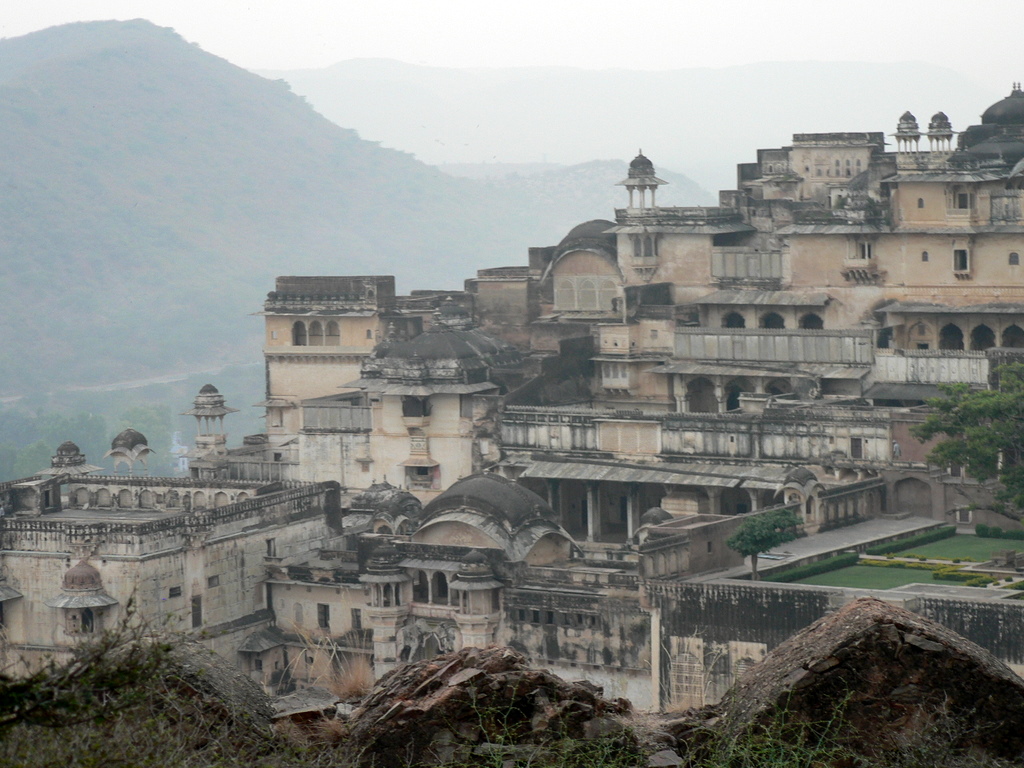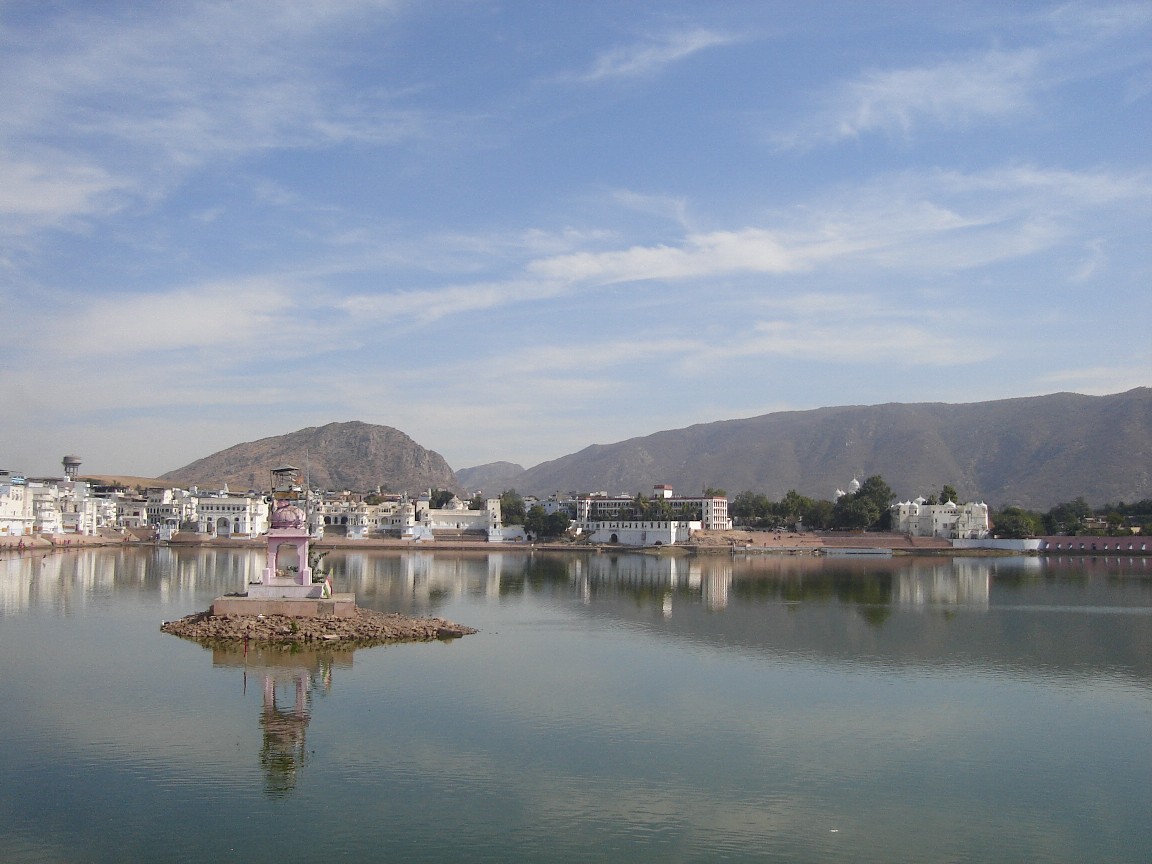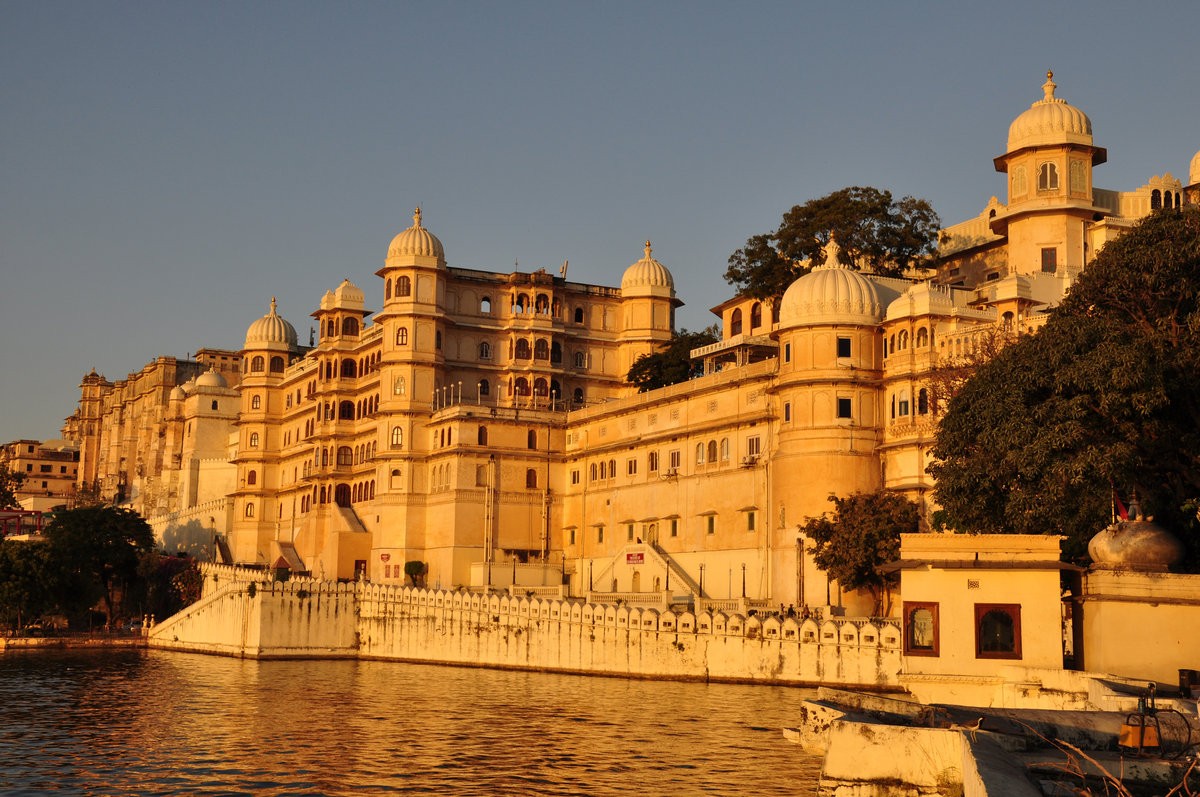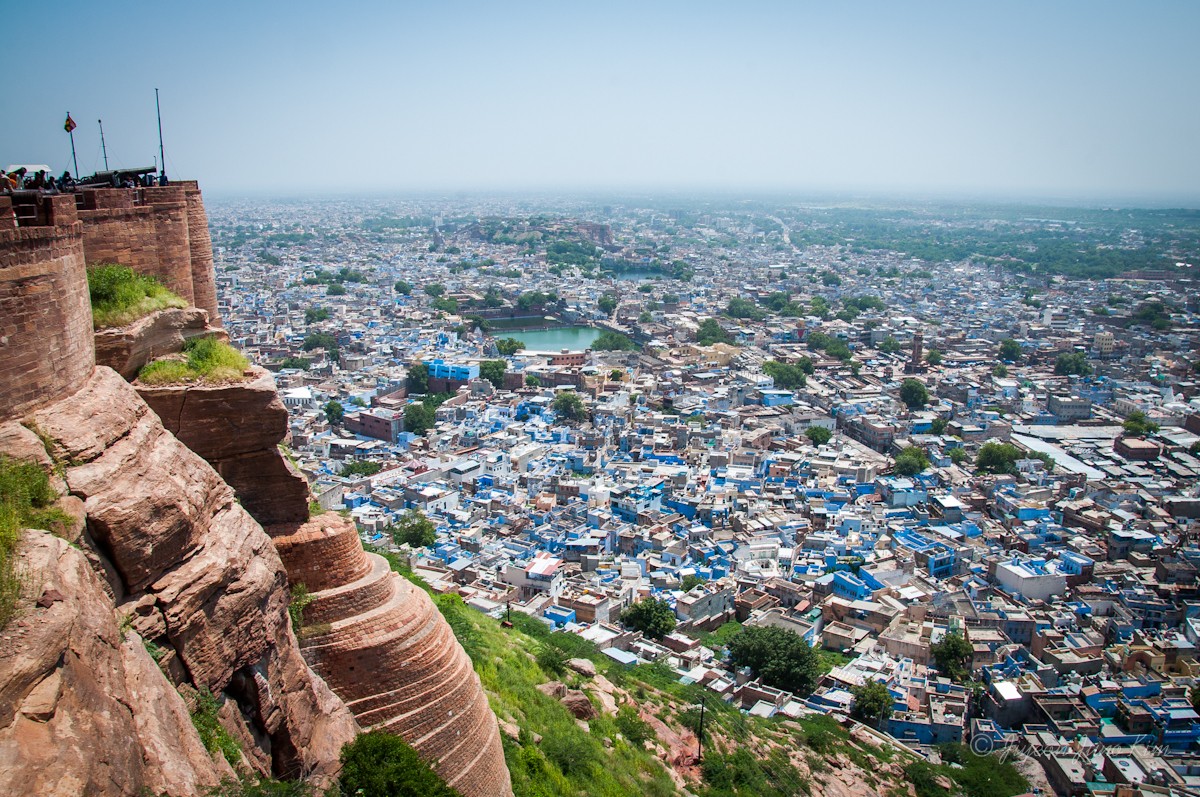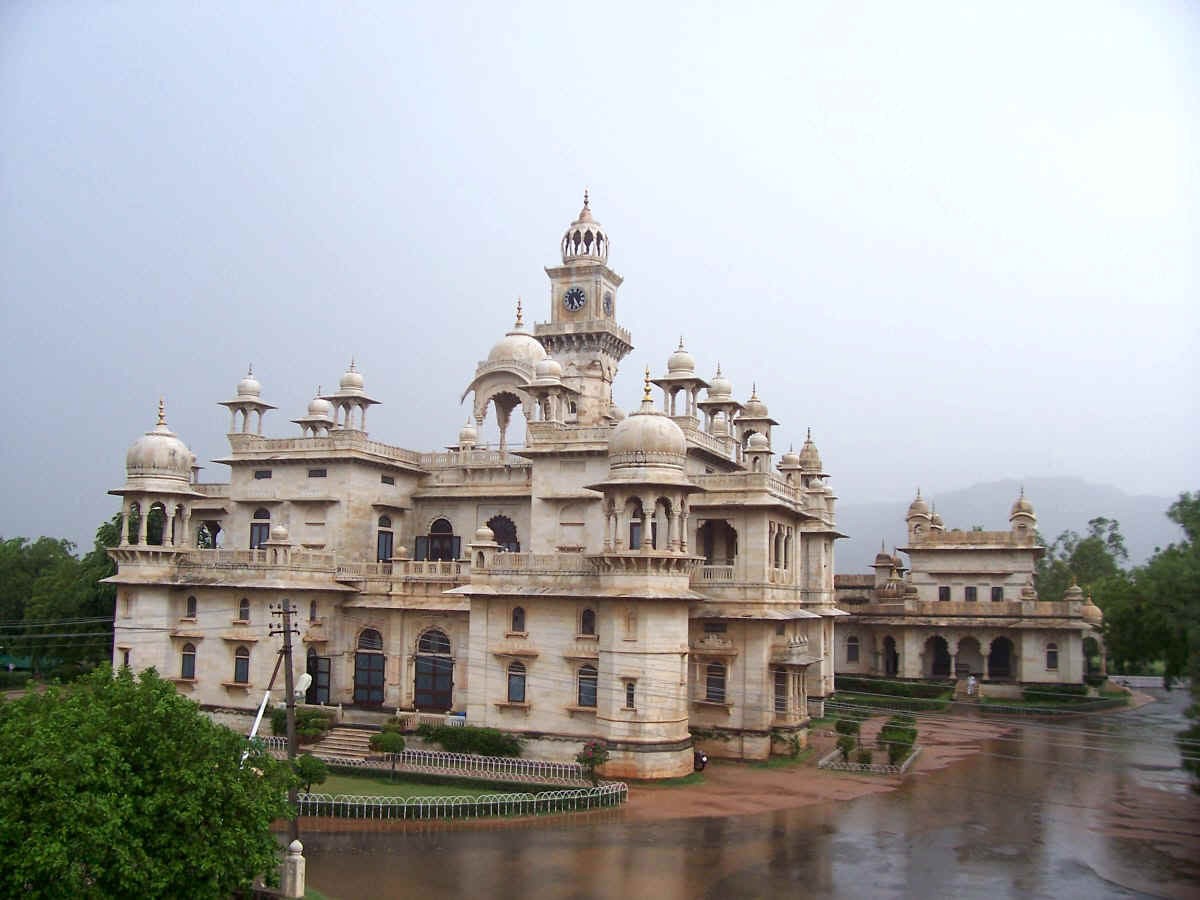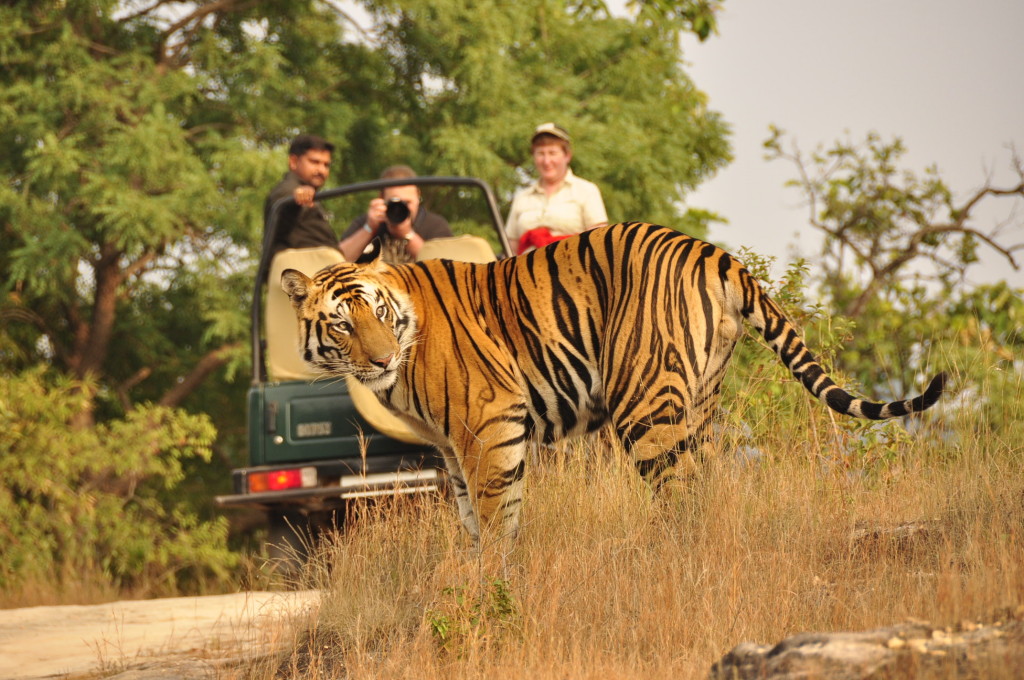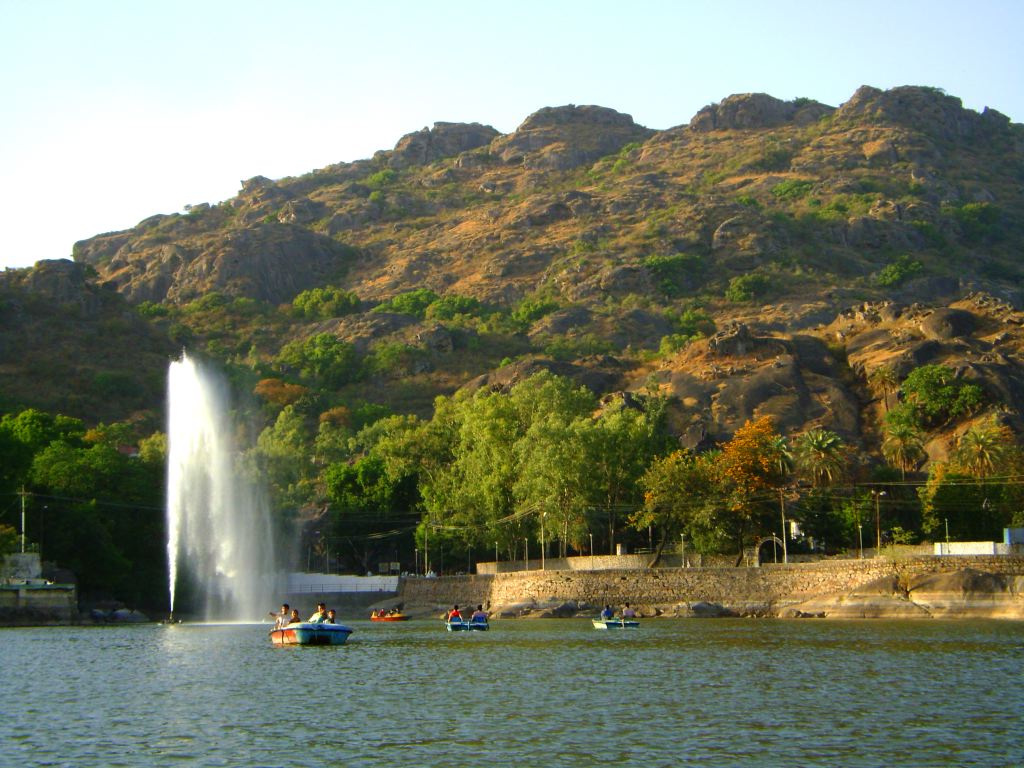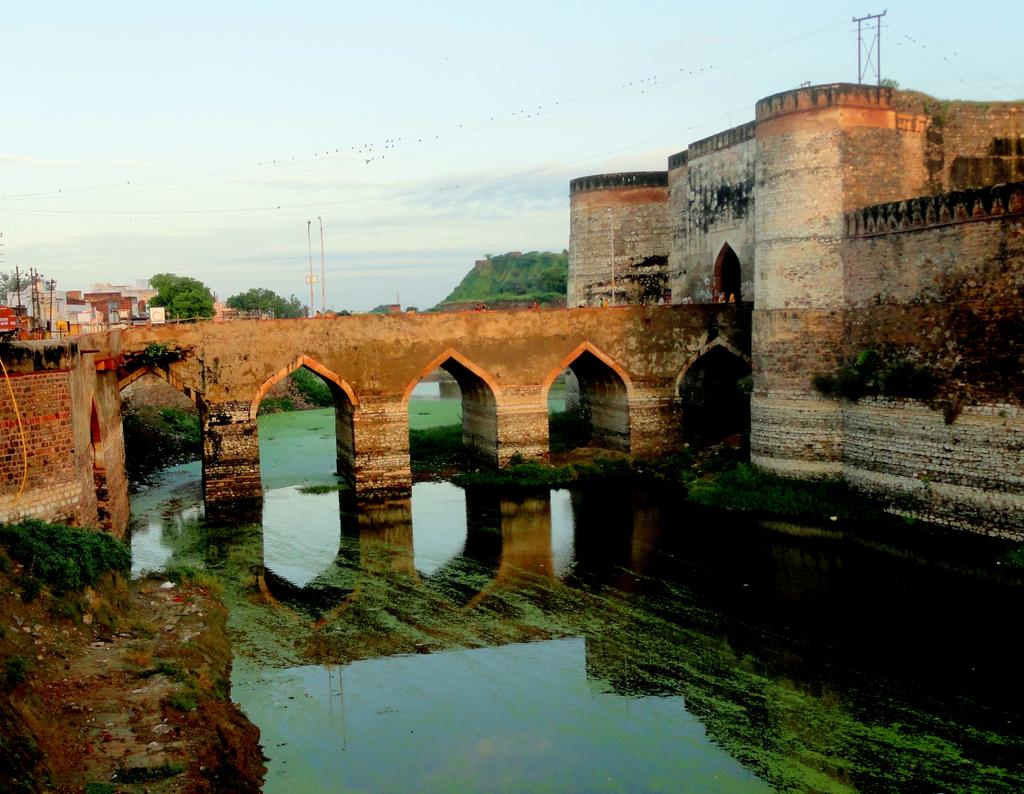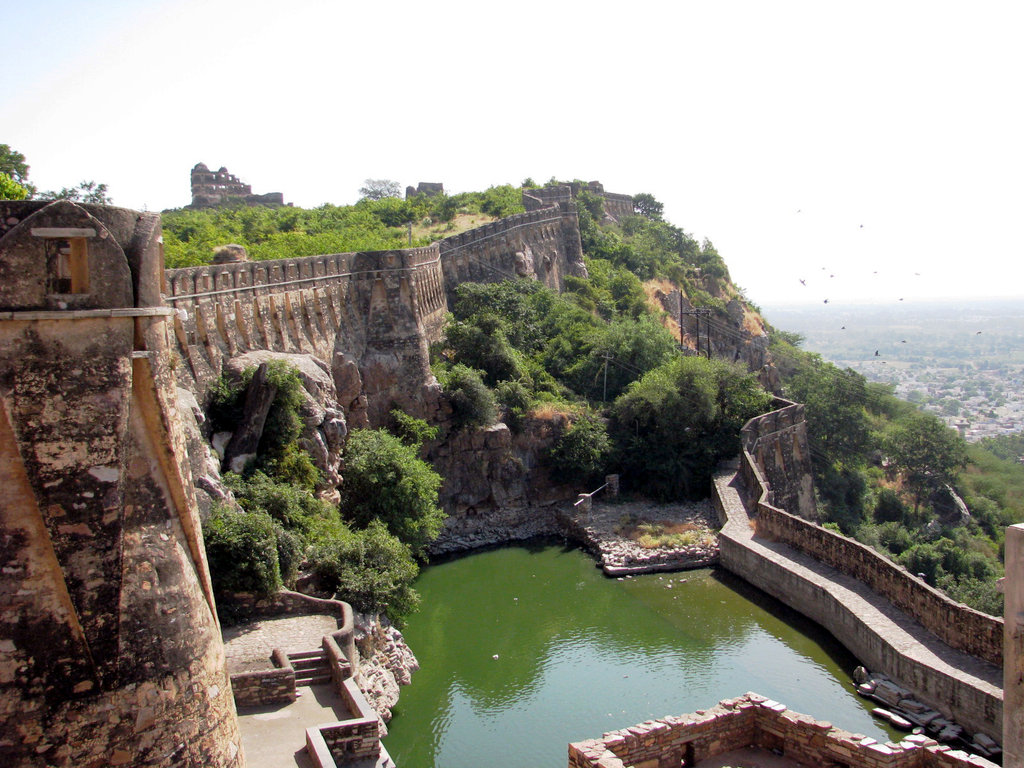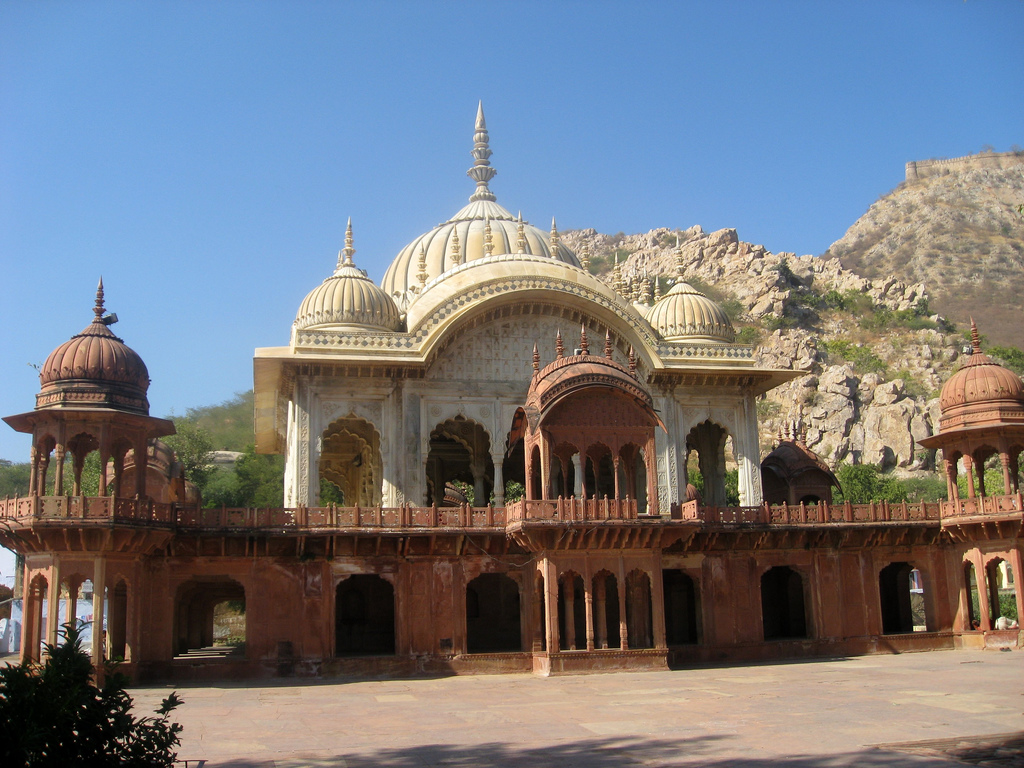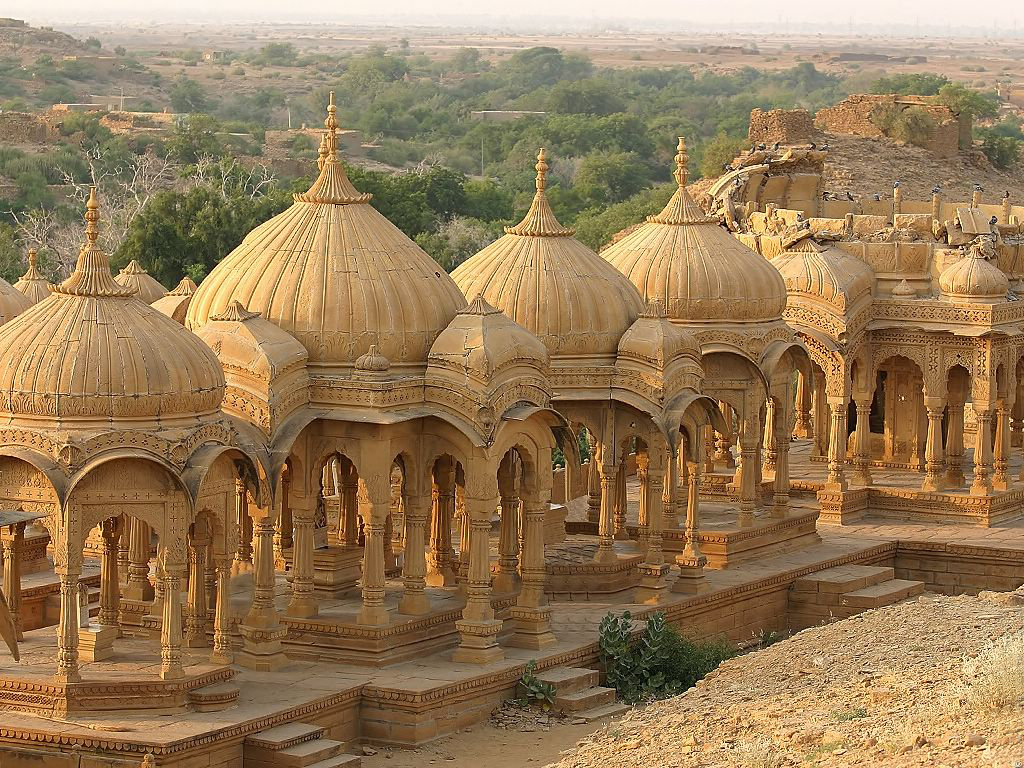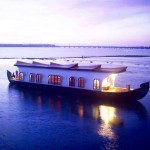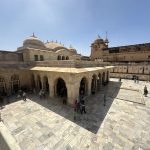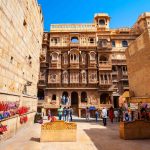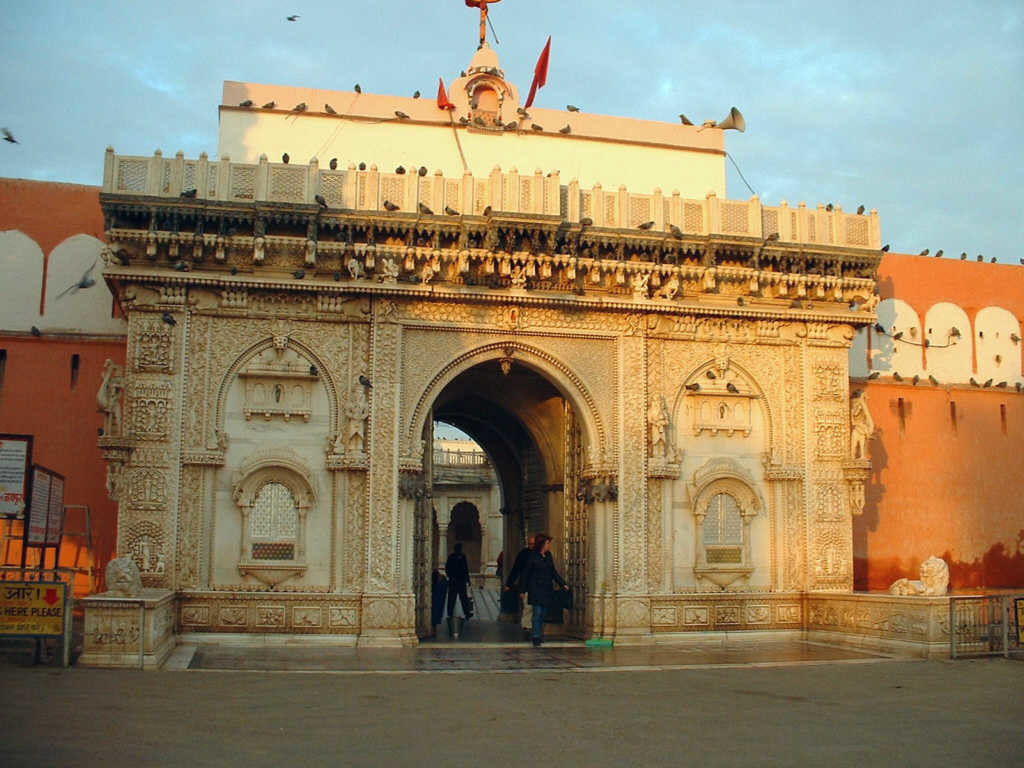
Bikaner Tourism and Travel Guide:
History of Bikaner: Bikaner The city of Bikaner came into being in the 15th century when it was founded by Rao Bikaji , a descendent of Jodha (founder of Jodhpur). Placed strategically on the ancient caravan routes that linked Asia to North India to the Gujarat seaports, Bikaner’s prosperity drew attention to it from many quarters, most of it unfavorable.
History proves that Bikaner was constantly locked in battles with the Mughal Empire, but later forged a friendship with Emperor Akbar. But with the decline of the Mughal dynasty, the city of Bikaner suffered another setback. Afterwards, The rulers of Bikaner later signed a treaty with the British and remained loyal to them till it was merged with the other princely states to form the state of Rajasthan, which ultimately became a part of independent India.
Climate: Bikaner is one of the most visited cities in the state of Rajasthan. City is situated at an altitude of 228 meters. Summers are quite warm here with highest temperature recorded being as high as 49 ‘C usual
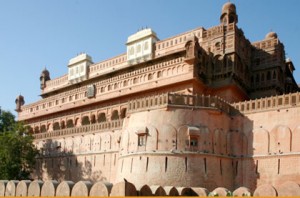
temperature during summers is still very high and is about 43 ‘C. Winters provide a very pleasant climate with lowest temperature being 8 ‘C. Best time to visit Bikaner is during the months of October to February.
How to Reach?
Air: The nearest airport is Jodhpur
Rail: Bikaner is connected with Delhi, Jaipur, Jodhpur, Bhatinda, kalka and Howarh (Calcutta)
Road: Bikaner is connected by road with the major cities of India.
Cusine: Business and raised to the level of an art-form. Hundreds of cooks worked in the stately palaces and kept their recipes a closely guard ed secret.
Some recipes were passed on to their sons and the rest were lost for ever. It became a matter of great prestige to serve unusual dishes to guests and the royal cooks were encouraged to experiment. The tales of how cooks tried to impress their guests by presenting at least one unforgettable item on the menu have
Bikaner now become legends. The food was served in gold and silver utensils and possible to taste all the delicacies served. The finest cooking in India was derived from the Mughals and did influence the royal kitchens of India, as did European cooking. But the common man’s kitchen remained untouched, more so in Bikaner. Cooking here has its own unique flavour and the simplest, the most basic of ingredients go into the preparation of most dishes. Bikaner cooking was influenced by the war-like lifestyle of its inhabitants and the availability of ingredients in this region. Food that could last for several days and could be eaten without heating was preferred, more out of necessity than choice. Scarcity of water, fresh green vegetables have all had their effect on the cooking.
In this desert belt cooks use minimum of water and prefer, instead, to use mote milk, buttermilk and clarified butter dried lentils, beans from indigenous plants like sangri, ker, etc. are liberally used. Gram flour is a major ingredient here and is used’ to make some of the delicacies like khata, gatta sabzi, pakodi, powdered lentils are used for mangodi, papad. Bajra and corn is used all over the region for preparations of rabadi, kheechdi, and rods.
Various chutneys are made from locally available spices like turmeric, coriander, mint and garlic. Perhaps the best known Rajasthani food is the combination of dal, bati and churma but for the adventurous traveller, willing to experiment, there is a lot of variety available. Besides spicey flavours, S Bikaner is distinguished by its popular sweet Rasogullas, Raj Bhog, GaundPak, Ghevar, Fini, and Rabri
Food of Bikaner, as in other parts of Rajasthan, is prepared in such a way that it lasts for several days and this is what lends uniqueness to Rajasthani cuisine. A good portion of Rajasthan is desert land, which explains the fact that water is scarcely available and the availability of fresh vegetables is confined to specific places and certain specific times of the year. Also, food is cooked so as to utilize least amount of water. The chief ingredients for cooking Rajasthani dishes
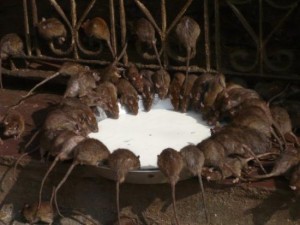
include milk, ghee, butter, spices and dried fruits. The cereals are used for making chapatis. Padads are a way of preserving food. Padads are made by crushing and processing pulses. They too can be preserved for a long time
Bikaner Special Food: Bikaner is famous for its aloo bhujias. These are a type of fried potatoes, which are very tasty and high on calories. Aloo bhujias are popular throughout India and it is also sold in other states. Bikaner specializes in different types of sweets as well. Rasgullas and Sattus are mostly preferred by tourists.
Bikaner Sattu: The Bikaneri sattu is made from water, jaggery and barley and are seasoned with nuts and silver foil. This is a festive sweet in Bikaner. There is a tradition that during the Navaratri or ‘Badi-Teej’ festival, the wife breaks her fast by biting on to a Sattu sweet, offered by her husband.
The food of Bikaner is popular among the tourists, but those with an eye on calorie, must select the menu of Rajasthani cuisines or dishes carefully
Shopping: Shopping in Bikaner is synonymous with shopping for exquisite crafts in a rustic desert paradise.
A flourishing world of camel leather shoes, camel leather chairs, camel fur rugs, camel leather belts, bags, miniature paintings on camel hides, beaded and sequined gorbandhs, lac bangles etc. envelops you in a glorious desert aura.
A grand way to enjoy shopping in Bikaner would be to reach this camel country during the annual Camel Festival, perch
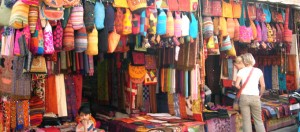
yourself on a camel and ride to brilliant desert stalls aglitter with local crafts.
Enjoy shopping for local goodies like the traditional Bikaneri bhujia and Bikaner sweetmeats prepared with thick and delicious camel milk. Stop by at a local desert stall and sip camel milk tea before resuming your shopping spree that sets you in the midst of lavishly embroidered quilts, ghagras, camel leather goods and bright paintings.
Shopping in Bikaner with Rajasthan Holiday gives you an opportunity to learn more about the glorious Bikaner culture as you see local artisans weave local traditions and artistic skill into one delightful array of local crafts
Bikaner Handicrafts: Bejeweled with rich cultural traditions that manifest themselves in local handicrafts, Bikaner is just the place for shopping enthusiasts. Rajasthan holiday offers special shopping tours to Bikaner, Rajasthan and gives you ample opportunity to delve deep into traditions of exquisite handicrafts and local customs.
Tour desert settlements and see potters shaping exotic clay utensils, vases and objects d’ art. Hand painted lacquer lamps with delicate patterns, hand woven wool shawls and camisoles, ethnic blankets with hand-block printed patterns and metal ware enchant you on your Bikaner handicrafts tour.
Brilliantly lit local marketplaces and bazaars open up a panorama of handicrafts that enamor you into a pleasant reverie and gives you the distinct impression of having been transported to a royal era.
Ethnic and artistically designed Kundan, silver and imitation jewelry, hand stitched local wear, aglitter with beads, sequins etc., hand embroidered camel skin leather mojari’s and lac bangles show you a whole new world of rustic grandeur and fascinating Bikaner handicrafts.
Bikaner shopping tours prove to be a handicraft bonanza as you feast your eyes on photo frames adorned with pieces of gemstones, woolen rugs, prettily patterned carpets and a profusion of wood carved furniture.

